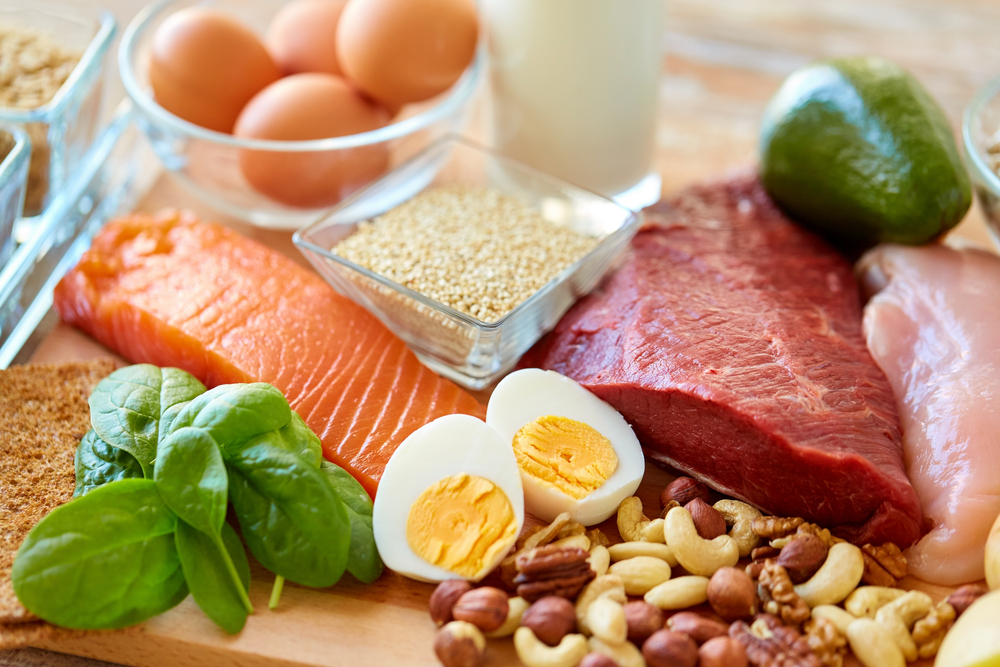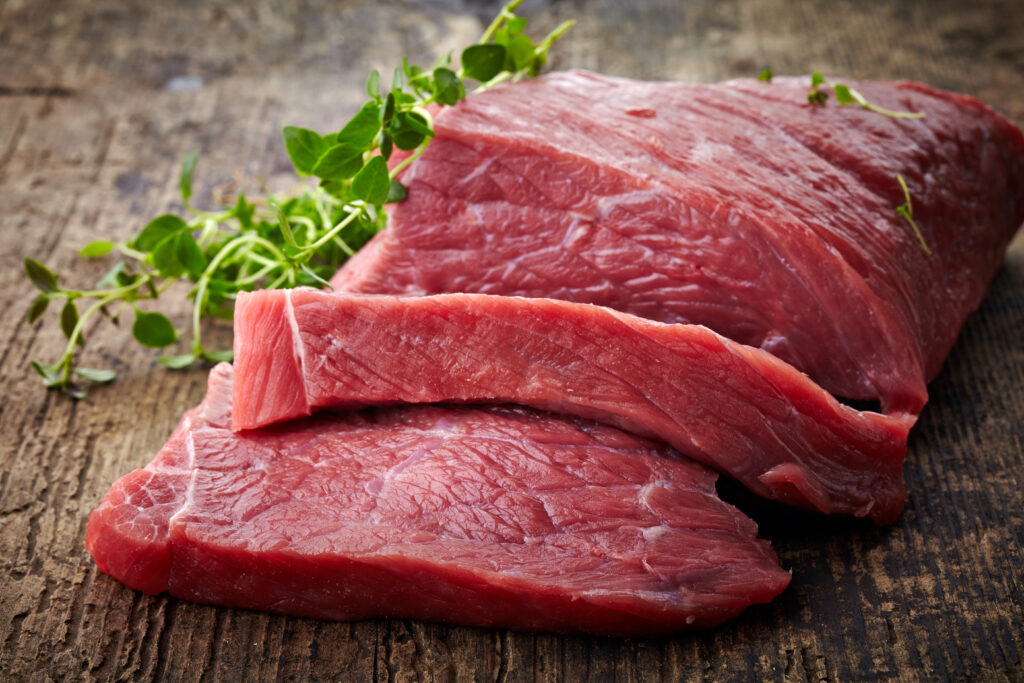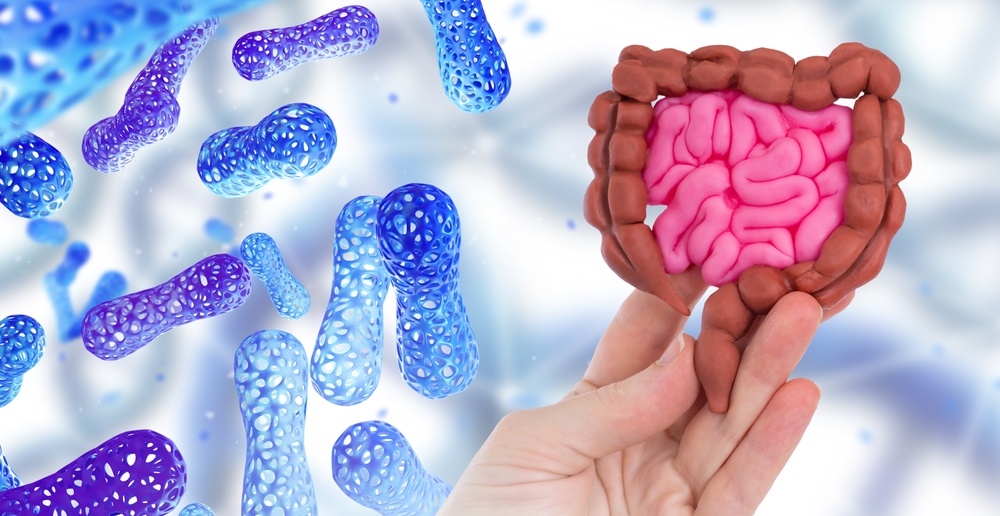Protein. It’s the magical macronutrient that’s supposed to fix everything from your energy to your skin to your muscle mass. Everyone’s obsessed with it—whether it’s in your smoothie, sprinkled on your salad, or packed into your post-workout bar. But here’s the thing: most of us have no idea how much of it we need. So let’s cut through the noise and get to the real answer. Spoiler alert: it’s not the amount you think. Ready?
1. The Myth Of The “One-Size-Fits-All” Protein Intake

We’ve all heard the rule: “Eat 1 gram of protein per pound of body weight,” and many have blindly followed it. While this might work for a select group of ultra-athletes and bodybuilders, it’s far from a universal truth. Our bodies don’t all require the same fuel to function at their best. Factors like age, activity level, and metabolism play a pivotal role in how much protein we need, so tossing out a generic number can be misleading. Not to mention, too much protein might just be as detrimental as too little.
It’s crucial to focus on personalizing your intake based on your lifestyle. For example, if you’re not lifting weights or engaging in high-intensity cardio, your body won’t need an abundance of protein to maintain muscle mass. Instead, moderate intake will keep things in balance. This is why expert recommendations often advise a range—somewhere between 0.6 and 1.0 grams of protein per pound of body weight, depending on your activity level. According to Orgain Healthcare, protein needs vary significantly based on individual factors like age, activity level, and overall health.
2. Quality Over Quantity

How much protein you consume doesn’t matter if it’s not the right kind. A high-protein diet is only as effective as the sources from which it’s derived. Whole, minimally processed foods, like lean meats, fish, eggs, and plant-based options like legumes and quinoa, deliver not just protein but also the other essential nutrients your body craves. The big mistake? Relying too heavily on protein supplements and powders that can come with questionable additives and a whole lot of sugar.
When protein is sourced from whole foods, it’s absorbed more efficiently by your body, and you’re also benefiting from the added nutrients that accompany these natural foods. So, while a protein shake might sound like the fast track to getting your daily dose, it’s no substitute for nutrient-dense options like salmon or tempeh. According to Prevention, whole food sources of protein are far superior to supplements in terms of nutrient quality and absorption.
3. Protein Isn’t Just About Muscle

While we often associate protein with bulging biceps and athletic performance, it’s about far more than just muscle gain. Protein is an essential building block for nearly every cell in your body—it’s in your hair, skin, nails, enzymes, and even your immune system. It’s a fundamental part of the body’s repair and maintenance, so even if you’re not hitting the gym, your body still needs it to function optimally. From cellular regeneration to hormone production, protein is the backstage hero of your body’s internal operations.
So the next time someone tells you protein is only for muscle-heads, remember: it’s about sustaining your body at a cellular level. If you’re not getting enough, your skin could start to lose its glow, your energy levels might dip, and your overall vitality could take a hit. According to Harvard Health, adequate protein intake supports holistic health beyond just muscle development.
4. Timing Matters, But It’s Not Everything

Sure, you’ve heard that there’s a magic window for protein intake immediately post-workout, but the truth is much more nuanced. Research shows that while it’s beneficial to consume protein within a few hours of exercising, it’s not the only time your body needs it. What truly matters is spreading your protein intake throughout the day to ensure steady muscle repair, energy levels, and overall health. So don’t obsess over that 30-minute post-workout window; instead, focus on balance.
Moreover, waiting until late in the evening to consume a heavy protein meal is not ideal either. This could disrupt sleep patterns since digestion slows down during sleep. According to Momentous, distributing protein across meals throughout the day ensures consistent support for muscle repair and overall health without unnecessary spikes in intake timing.
5. The Protein-Weight Loss Connection

Is protein the holy grail for weight loss? Not exactly. But its role in helping you manage hunger and keep your metabolism revved up is undeniable. A higher protein intake can help you feel full longer, which naturally reduces the urge to snack between meals. And because your body burns more calories digesting protein compared to fats or carbs, it can also subtly enhance your metabolism. Still, don’t expect protein to perform miracles on its own—there’s no substitute for an overall balanced, healthy diet and regular exercise.
What you want to avoid is leaning on protein as a crutch for unhealthy eating habits. Yes, it can help you lose weight, but only when coupled with mindful eating and the right amount of calories for your body’s needs. It’s not about cutting carbs or fats completely—it’s about finding the perfect balance. Your protein intake should complement a healthy lifestyle, not become the cornerstone of a restrictive, unsustainable eating pattern.
6. Women, Protein, And The Unspoken Truth

We need to talk about the nuanced protein needs of women, who are often told to eat far less protein than their male counterparts. It’s a cultural norm that’s as outdated as it is limiting. Women require protein for more than just muscle—think hormone regulation, hair health, and skin elasticity. Yet, many are under-consuming because they’re misled by the myth that too much protein is masculine or bulky. Let’s break it down: Your protein needs should be based on your activity level and overall health, not some arbitrary gender expectation.
The reality is that protein needs should be based on individual factors like activity level, age, and overall health, not gender. Women who engage in regular exercise, particularly strength training, need enough protein to support muscle recovery and growth. Moreover, protein plays a pivotal role in keeping your energy levels stable and helping you feel full longer, which is essential for weight management. The bottom line? Women should stop buying into the myth that protein is only for men, and instead, start prioritizing this essential nutrient to improve overall health and well-being.
7. The Link Between Protein And Healthy Aging

As you age, your body undergoes several changes that can affect muscle mass and overall health. This is where protein plays an important role—it’s not just for building muscle, but for preserving it as you grow older. Research shows that older adults require more protein than younger people to maintain muscle mass, prevent sarcopenia (age-related muscle loss), and support bone health. The body’s ability to absorb and use protein declines with age, which is why increasing your intake can be a game-changer.
Protein helps maintain strength, mobility, and metabolism in the elderly, which is crucial for overall well-being. So, while the younger crowd may prioritize protein for aesthetics, older individuals need it for practical, health-preserving reasons. If you’re aiming to age gracefully and maintain your vitality, consider increasing your protein intake as a preventive measure, not just a response to physical activity. It’s a key ingredient for healthy aging and a longer, more active life.
8. The Digestive Dance: How Your Body Processes Protein

Not all proteins are created equal when it comes to digestibility. Your body doesn’t absorb and process protein in the same way, and the speed of digestion can vary based on the source. Animal-based proteins are typically more bioavailable, meaning your body can break them down and use them more efficiently. On the other hand, plant-based proteins often come with fiber, which slows digestion but provides other benefits for gut health. Your digestive system works overtime when breaking down protein, which is why you might feel full for longer after a protein-packed meal.
Understanding how your body handles protein is key to maximizing its benefits. If you’re feeling bloated after protein-heavy meals, you may want to evaluate how much of it you’re consuming in one sitting or whether you’re getting it from harder-to-digest sources. Experiment with different protein combinations to see what feels best for your body. Whether you’re choosing a hearty steak or a veggie-packed lentil dish, keep in mind that your body is always working to get the most out of what you eat.
9. Protein And Your Immune System

One of the lesser-discussed benefits of protein is its direct impact on your immune system. Your immune cells, antibodies, and enzymes are all made up of proteins, meaning that without adequate protein, your body’s defense mechanisms weaken. Particularly during cold and flu season, having enough protein in your diet ensures that your immune system can perform at its peak. Think of protein as a booster shot for your immune health—essential for fighting off illness and maintaining overall resilience.
If you’re constantly getting sick or feeling run down, it might be time to reassess your protein intake. Your body can only function properly when it has the building blocks it needs, and protein is at the heart of that. So, while vitamins and minerals are often the spotlighted nutrients for immune health, protein is an unsung hero that shouldn’t be ignored. Prioritize it, and watch how your immunity gets a much-needed upgrade.
10. The Protein-Caffeine Duo: A Perfect Match

Here’s a pairing you might not expect: protein and caffeine. While caffeine is known for giving you that pick-me-up, protein is there to stabilize your energy levels, keeping you from crashing mid-afternoon. Together, they’re a dynamic duo that can fuel your day without the jitters. For example, having a protein-packed breakfast along with your morning coffee can help balance the spike in energy from caffeine, keeping you productive and focused without the energy rollercoaster.
This combo works particularly well for those with high-energy needs or anyone who needs to power through a demanding day. Whether it’s a protein shake alongside your morning coffee or a protein-rich snack mid-afternoon, incorporating both will give you a balanced boost. Just make sure to avoid excess caffeine, as too much can affect protein absorption. With the right balance, you’ll harness the best of both worlds.
11. When Protein Becomes Too Much

As with anything, moderation is key. Protein is essential for your body’s functions, but overdoing it can have negative effects, like kidney strain, digestive issues, and even bone density loss. Excess protein can put undue pressure on the kidneys to process and excrete the nitrogen from amino acids, leading to possible long-term damage. What’s more, eating too much protein at the expense of other nutrients can create imbalances that negatively impact your health.
It’s essential to listen to your body and recognize the signs of overconsumption. If you feel sluggish, bloated, or notice changes in your digestion, it might be time to dial back on your protein intake. Balance is always the best approach, and moderation ensures you’re getting the right amount to fuel your body without overburdening it. Find your happy medium—your body will thank you.
12. The Importance Of Protein In Recovery

If you’re pushing your body in workouts or through physical labor, protein is non-negotiable for effective recovery. Muscles break down during activity, and protein helps repair and rebuild them. Post-exercise, your body is in a state of recovery, and having the right amount of protein is essential for reducing soreness, boosting strength, and improving performance. This is why athletes, gym-goers, and active individuals alike prioritize post-workout protein intake.
However, recovery isn’t just physical—your body needs protein to heal itself from all kinds of stress. Whether it’s muscle fatigue or emotional strain, protein helps rebuild your body on multiple levels. So don’t let the recovery phase fall short—make sure your protein intake supports the healing process, ensuring you come back stronger, faster, and more resilient. Give your body the protein it deserves, and it will reward you with better performance.

Abisola is a communication specialist with a background in language studies and project management. She believes in the power of words to effectively connect with her audience and address their needs. With her strong foundation in both language and project management, she crafts messages that are not only clear and engaging but also aligned with strategic goals. Whether through content creation, storytelling, or communication planning, Abisola uses her expertise to ensure that her messages resonate and deliver lasting value to her audience.


